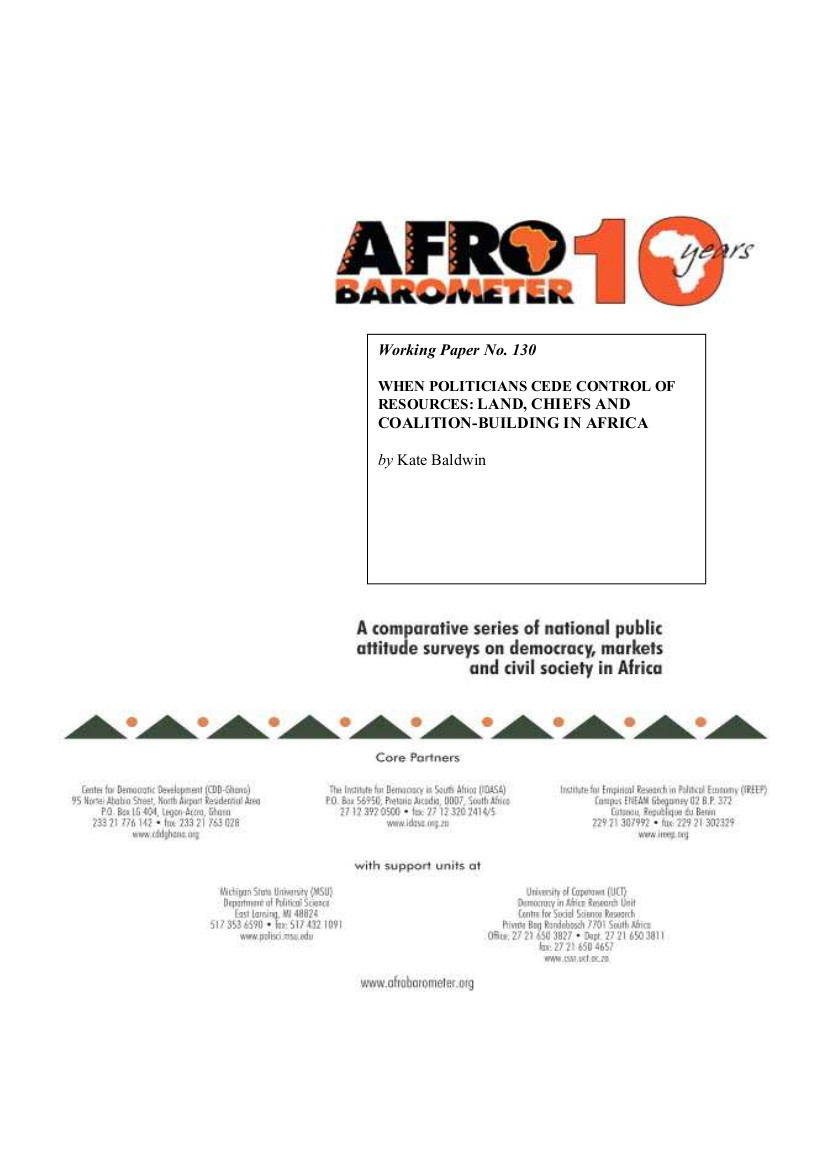Resource information
Why would politicians give up power over the allocation of critical resources to community leaders? This article examines why many African governments have ceded power over the allocation of land to non-elected traditional leaders. In contrast to the existing literature, which suggests traditional leaders’ power is a hang-over from the colonial period that has not been eliminated due to weak state capacity, I argue that African politicians often choose to devolve power to traditional leaders as a means of mobilizing electoral support from non-coethnics. I test the explanatory power of this argument using a new data set including approximately 180 sub-national regions in Africa; the data set was constructed by combining data from surveys with environmental, anthropological and historical data. The article finds that historical and geographic constraints do not fully explain patterns in the devolution of power to chiefs, and that traditional chiefs in a position to mobilize electoral support from politically unaligned ethnic groups are given greater responsibility over the allocation of land. The cross-sectional analysis is complemented by an analysis of changes in land legislation across time in each country, which shows that the prospect of competitive elections often triggers decisions to devolve power to chiefs.


